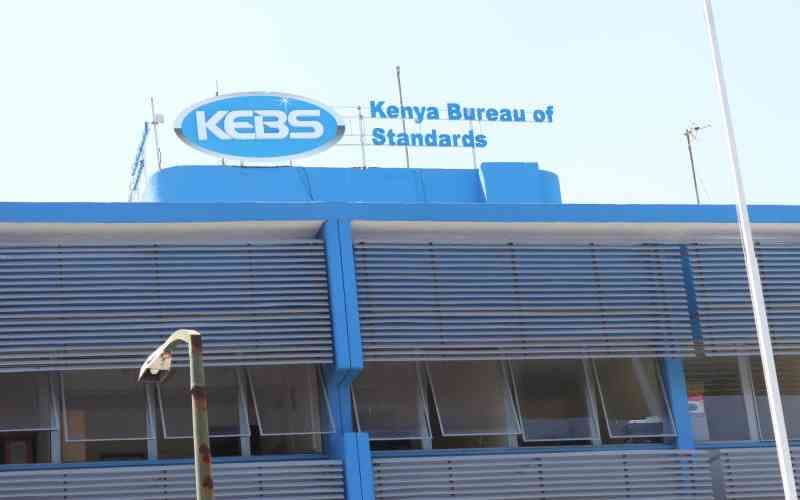We're loading the full news article for you. This includes the article content, images, author information, and related articles.
A new collaboration between key Kenyan regulatory bodies aims to bolster product quality and safety, directly impacting public health and fostering growth in both local and international trade.

The Kenya Bureau of Standards (KEBS), the Energy and Petroleum Regulatory Authority (EPRA), and the Ministry of Health have announced a joint initiative to enhance product quality, safety, and trade growth across the nation. This collaboration, highlighted by KEBS Managing Director Esther Ngari on Tuesday, October 14, 2025, during World Standards Day, underscores a concerted effort to safeguard consumers and boost Kenya's economic competitiveness.
The partnership is designed to tackle various challenges, including malnutrition through fortified foods, combating fuel adulteration, and mitigating the threat of aflatoxins in the food chain. Trade Cabinet Secretary Lee Kinyanjui emphasised that robust quality standards are fundamental to unlocking Kenya's full trade potential.
KEBS, established in July 1974 under the Standards Act, Chapter 496 of the Laws of Kenya, is the government agency responsible for maintaining standards and practices of metrology in Kenya. Its mandate includes promoting standardisation in industry and commerce, providing testing facilities, and certifying goods for export.
EPRA, formed under the Energy Act of 2019, regulates the energy and petroleum sectors, ensuring fair pricing, efficiency, and sustainability. It is responsible for licensing, monitoring supply, and enforcing compliance with regulations.
The Ministry of Health's functions encompass health policy, sanitation policy, preventive and promotive health services, and health inspection, among others. These three bodies play critical roles in consumer protection and economic development, making their joint efforts significant for national progress.
The collaboration aligns with existing legal frameworks that empower each agency to ensure public safety and foster economic growth. KEBS's role involves developing and enforcing national standards, conducting product testing, and issuing certifications. EPRA's mandate includes working with relevant authorities to formulate and enforce environmental, health, safety, and quality standards within the energy sector. The Ministry of Health contributes through its policies on food and food handling, health inspection, and overall sanitary services.
This integrated approach aims to streamline regulatory processes and enhance enforcement, ensuring that products meet both national and international benchmarks. Kenya has also developed a Quality Policy to guide local enterprises in adopting sustainable quality improvement practices to enhance their competitiveness in overseas markets.
The partnership directly benefits Kenyan consumers by ensuring access to safer and higher-quality products. For instance, KEBS's collaboration with the Ministry of Health on the national fortification programme has been instrumental in countering malnutrition by enforcing standards for fortified maize flour.
In the energy sector, KEBS provides the testing and certification backbone against Kenyan standards, complementing EPRA's regulatory oversight. This protects consumers from substandard fuel, which can damage engines and pollute the environment, while also promoting fair trade practices.
Manufacturers and traders are also key stakeholders. Adherence to quality standards is crucial for Kenyan products to compete effectively in regional and international markets. Recent incidents of rejected Kenyan goods due to unmet quality standards highlight the urgency of such collaborations.
The presence of substandard and counterfeit products in the market not only endangers consumer health and safety but also undermines legitimate businesses, stifles innovation, and hinders economic growth. The macroeconomic implications of counterfeiting include diminished consumer confidence in domestic products, a preference for imported goods, and a slowdown in industrial growth.
For Kenya to thrive in international trade, it must prioritise product quality to ensure adherence to globally accepted standards. This requires investments in research and development, robust testing procedures, and transparent communication channels.
While the collaboration is a positive step, the effectiveness of enforcement mechanisms and the capacity to consistently monitor and regulate a vast array of products across diverse sectors remain areas requiring continuous evaluation. The extent to which these efforts will curb the influx of illicit goods and fully transform consumer perceptions of local products is yet to be definitively seen.
The announcement of this deepened partnership was made on Tuesday, October 14, 2025, during World Standards Day. KEBS has integrated collaboration into its core operations to effectively deliver on its mandate. The agencies are expected to continue their joint operations and expand their reach to ensure compliance across various industries.
Observers will be keen to see the tangible outcomes of this collaboration, particularly in reducing instances of substandard products, improving public health indicators related to food safety, and enhancing Kenya's export competitiveness. The impact on small and medium enterprises (SMEs), often disproportionately affected by counterfeit competition, will also be a key area of focus.
Keep the conversation in one place—threads here stay linked to the story and in the forums.
Sign in to start a discussion
Start a conversation about this story and keep it linked here.
Other hot threads
E-sports and Gaming Community in Kenya
Active 9 months ago
The Role of Technology in Modern Agriculture (AgriTech)
Active 9 months ago
Popular Recreational Activities Across Counties
Active 9 months ago
Investing in Youth Sports Development Programs
Active 9 months ago
Key figures and persons of interest featured in this article